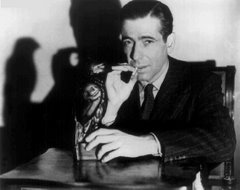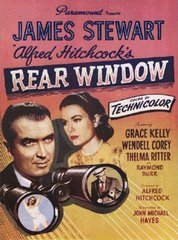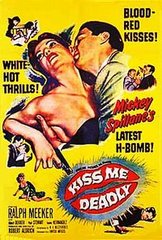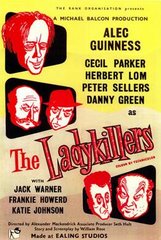First, things started off well with a ridiculously awesome Charles Laughton as crazy (or crazy-like-a-fox?) Nero:
 Nero can't believe how brilliant his plan is to blame the burning of Rome on the Christians. He's kinda awesome.
Nero can't believe how brilliant his plan is to blame the burning of Rome on the Christians. He's kinda awesome.Next, we have Fredric March in a really short tunic:
 March's Marcus is kind of a drip (especially when he's mooning over the Christian girl who was played by Nora Charles's cousin in the first Thin Man sequel), but I think he's cute in his little short shorts (and that silent era mascara is hot as well). According to somewhere, March insisted on going without underwear while making this movie. Surprisingly, Laughton was bothered by this.
March's Marcus is kind of a drip (especially when he's mooning over the Christian girl who was played by Nora Charles's cousin in the first Thin Man sequel), but I think he's cute in his little short shorts (and that silent era mascara is hot as well). According to somewhere, March insisted on going without underwear while making this movie. Surprisingly, Laughton was bothered by this.I won't bother posting pictures of the Christians, 'cause for the most part they are boring. I'm a Christian myself, so the whole religious aspect should have appealed to me, but it's pretty obvious that DeMille was more interested in the hedonism of ancient Rome than he was in the pious early Christians. Why is goodness so hard to make interesting in these "Christian epics"? Anyhoo...
Here's Claudette Colbert as the Empress Poppaea taking her milk bath and feeling herself up:
 In some other shots during this scene, Colbert's breast do manage to peak over the water. I was suitably scandalized.
In some other shots during this scene, Colbert's breast do manage to peak over the water. I was suitably scandalized.But wait! There's more:
 Lesbian dances? Check! This one is meant to seduce and corrupt the Christian girl (she's so boring I forgot her name). The Christian resists, but Marcus is having fun just watching (typical guy).
Lesbian dances? Check! This one is meant to seduce and corrupt the Christian girl (she's so boring I forgot her name). The Christian resists, but Marcus is having fun just watching (typical guy).Then we enter the arena and the movie hits its high point. Huge crowds, huge sets, huge spectacle.
Elephants crushing heads!
 (DeMille's just warming up for The Greatest Show on Earth)
(DeMille's just warming up for The Greatest Show on Earth)Nearly naked women tied up in chains awaiting the snapping jaws of crocodiles!

And finally: (implied) Gorilla rape!

There were some great shots of Amazon women fighting pygmies, but alas! I neglected to get screen grabs for those scenes. Just something to look forward to if you end up watching the movie. I can't say I recommend it, since so much of the film is taken up by the plight of the Christians and Marcus's love for the Christian girl (snooze). But Laughton and Colbert give wonderful hammy performances, and DeMille really does know how to stage and shoot spectacle. And all of this way back in 1932! I should really know better by now, what with my knowledge of film history, but these pre-Codes still manage to get me. But seriously, I thought they were going a little overboard in that one episode of Rome when they talked about women being raped by baboons as entertainment. Apparently, DeMille wasn't afraid to (almost) go there.



















4 comments:
Hi, thanks for the review. I like the naughtiness of the film: one would say that persecution issues were secondary to DeMille, he obviously enjoys himself with all these bizarre circus scenes... "Quo Vadis" is much boring in comparison: a strongman against a Bull? bah! Not to mention Ustinov's Nero, whose overbearing childiness is sort of unbearable to me: Laughton's Nero was also childish, but had an implied sexuality which Ustinov's lacked... not to mention that Laughton, with a much lesser screentime than Ustinov, makes his Nero more compelling to watch.
I kinda enjoy the pre-code, pagan bits of debaucherie (which were coveniently scissored in post-code releases). Mitchell leisen, who designed the costumes, once told that DeMille had a tight budget, and had to end the filming when he run out of cash... This probably means that, had DeMille some more money, we would have today extra footage of bizarre circus scenes.
This movie is an absolute hoot and a half, and you capture that well. Like you said, not a towering cinematic achievement, but good debauched fun. Gotta love the way DeMille would use an unassailably moral premise (ah, look at the Christians, suffering for their beliefs!) to show big-time decadence. And yes, the implied gorilla rape has to be seen to be believed (and maybe not even believed then). I mean, look at the floral garlands. Did the Romans really tart up their gorilla-bait like Maypoles?
Elissa Landi was so lovely, and she had a romantic background. European aristocracy of some sort. Claimed to be Empress Elisabeth of Austria's grandchild, but that appears to have been bogus. She was a smart woman who wrote several novels. But man, she was one lousy actress. In addition to the Thin Man sequel I saw her in The Count of Monte Cristo, and she is hopeless there as well. Sadly, she died of cancer at a very young age.
But The Sign of the Cross has one of my all-time favorite camp-classic movie comebacks. Fredric March snarls at Colbert, "Harlot!" To which she shrugs one perfect shoulder and says sweetly, "I love you."
Thanks for the comments!
Gloria,
Laughton really is fantastic and I wish he and Colbert had been the focus (I mean, Nero did end up murdering Poppaea if my memory of Roman history is correct, and that would have made an interesting movie all on its own), instead of the listless Christian stuff. But I guess we could only get the delicious decadence so long as it was coupled with pious Christian martyrdom. But in defense of QUO VADIS, even though it is inferior in almost every way to SotC as you point out, I did like the actual "quo vadis" scene with St Peter and his upside-down crucifixion. But that is the religious geek in me. ;)
Campaspe,
Very interesting about Elissa Landi! I wonder if any of her novels are still in print, I would love to check them out.
And that scene with March and Colbert was hilarious -- thanks for quoting it!
The scene of Peter's martyrdom in Quo Vadis is one of the few shots in that movie with real emotional impact. And I say that as a Merry Apostate.
Post a Comment